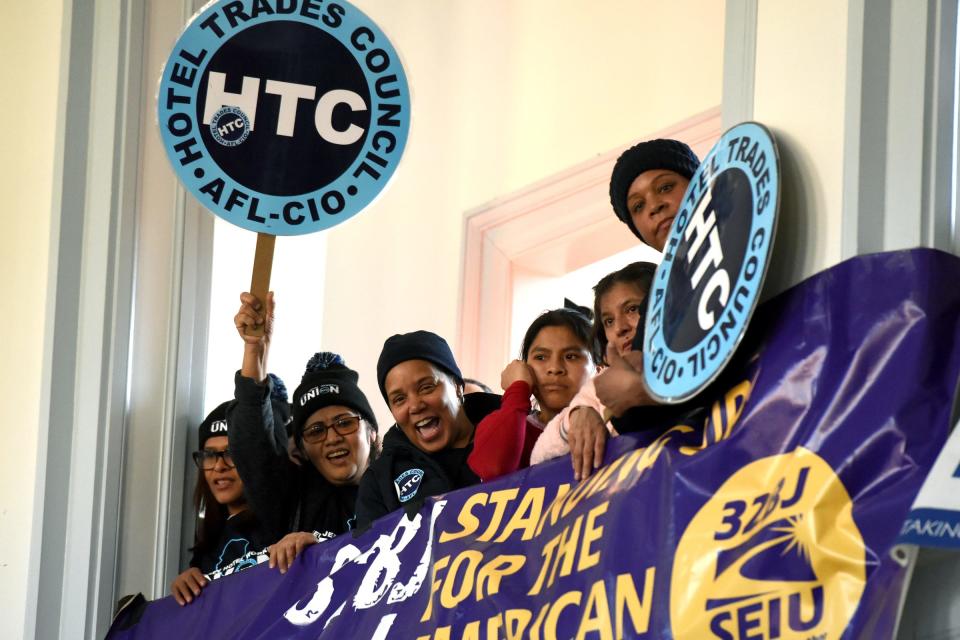NJ minimum wage increases to $13 an hour for many workers, but these are the exceptions
Workers earning minimum wage in New Jersey will see a dollar-per-hour raise on their paychecks earned this week, as the statewide minimum wage increased from $12 to $13 an hour on Jan. 1.
This pay bump comes courtesy of legislation Gov. Phil Murphy signed in February 2019 that gradually increases the minimum wage — which had been $8.85 an hour at the time — each year until reaching $15 for most employees in 2024.
There are exceptions meant to soften the blow for businesses.
Seasonal workers whose jobs fall only in the window of May 1 to Sept. 30 and employees of small businesses that employ fewer than six workers will see their wages increase to $11.90 an hour, up from $11.10.
These businesses will have until 2026 to reach $15 an hour.
Tipped workers

Tipped workers such as restaurant workers or bartenders will now earn an extra dollar an hour, bringing their hourly wage to a minimum of $5.13. But if a tipped worker does not bring in $13 an hour between that $5.13 wage and his or her tips, the company must pay the difference.
Agricultural workers
People who work on a farm will see their wages increase to $11.05 an hour, up from $10.44. Agricultural workers will reach $15 an hour in 2027.
Finances: After 'red wave,' NJ Democrats said they'll focus on affordability. These are their plans
Direct care staff in long-term care facilities
Workers who take care of residents in long-term care facilities will see a dollar an hour increase to $16.
The state Department of Labor and Workforce Development sets the minimum wage for the next year using the rate laid out in the law, or a calculation based on the Consumer Price Index, whichever is higher. After the minimum wage reaches $15 an hour, New Jersey's constitution requires that the agency increase the wage each year based on any increase in the Consumer Price Index.
There are exceptions to minimum wage protections including automobile salespeople and outside salespeople, such as employees customarily and regularly engaged away from the employer’s place of business. The exceptions also include workers younger than 18 years old, except for minors in "retail, food service, the first processing of farm products, beauty culture occupations, laundry, cleaning and dyeing occupations, light manufacturing and apparel occupations, and hotel and motel occupations," according to the state Department of Labor.
To view a chart of minimum wage increases, see below:
Ashley Balcerzak is a reporter covering affordable housing and its intersection of how we live in New Jersey. For unlimited access to her work, please subscribe or activate your digital account today.
Email: balcerzaka@northjersey.com
Twitter: @abalcerzak
This article originally appeared on NorthJersey.com: NJ minimum wage: $13 an hour this week, with exceptions

 money
money 